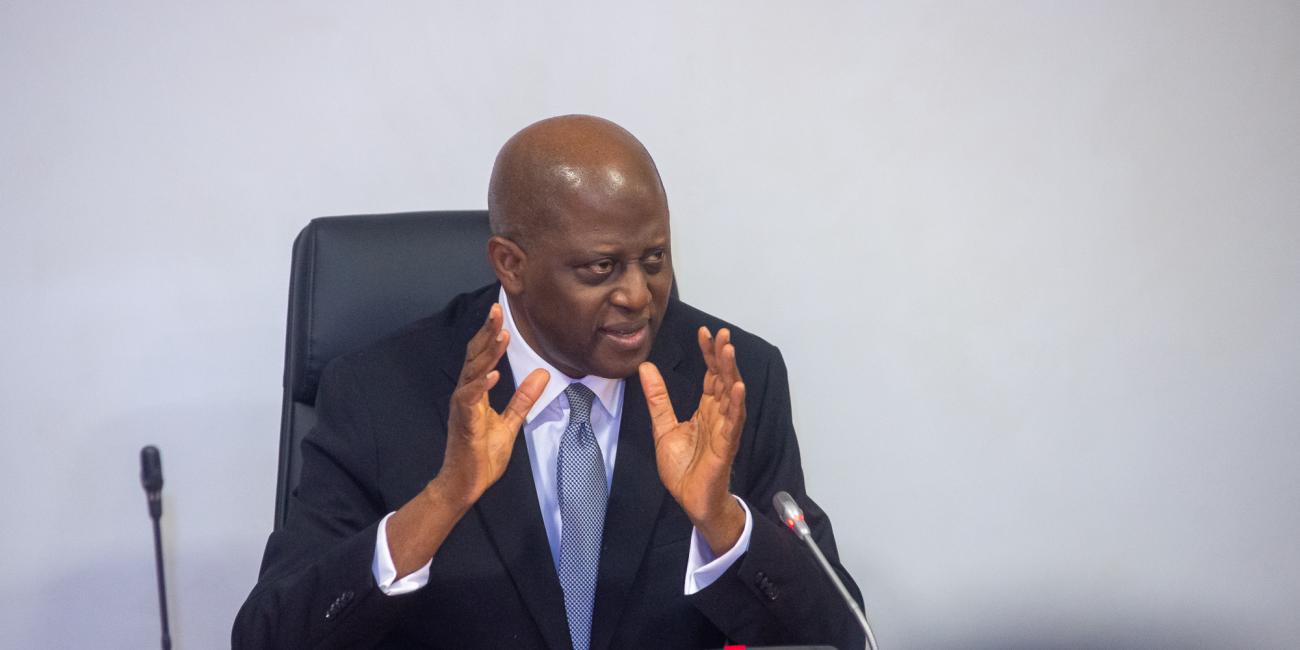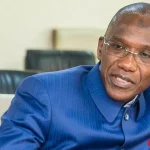...To get all news updates, Join our WhatsApp Group (Click Here)
Also Join our WhatsApp Channel (Click Here)
The Central Bank of Nigeria (CBN) failed to disclose details of the nation’s external reserves, valued at $40.23 billion, in its 2021 financial year report, as stated in the latest findings from the Office of the Auditor General of the Federation.
The 2021 audit report, released in December 2024, further exposed violations of internal policies on dollar time deposits by the CBN under the leadership of Godwin Emefiele.
Emefiele, whose tenure as CBN governor ended in June 2023, is currently facing charges by the Economic and Financial Crimes Commission (EFCC) at the High Court of the Federal Capital Territory, Abuja.
The EFCC accuses him of obtaining $6.2 million under false pretenses, using a forged letter purportedly from the Secretary to the Government of the Federation dated January 26, 2023.
The letter allegedly requested a contingent logistics advance from the CBN, which Emefiele falsely claimed was authorized by the president.
The audit also scrutinized the CBN’s adherence to its revised Investment Policy, raising additional concerns about financial management during the period under review.
“For the year 2021 financial year, the Bank failed to publish the position amounting to US$40,230,803,228.80 of the country’s external reserves to the public,” the report stated.
The report further noted that there was no waiver or new policy introduced during the period that could explain the non-disclosure of the external reserves.
It attributed the failure to weaknesses in the internal control systems at the Central Bank of Nigeria (CBN).
The report also pointed out that this lack of transparency violated Article 15(v) of the CBN’s revised Investment Policy, which mandates the Bank to define the content, form, and frequency of reports on external reserves to ensure transparency.
The Auditor General expressed concerns about the significant risks associated with this breach, including a lack of accountability, diminished transparency, and potential harm to Nigeria’s economic credibility.
The report cautioned that foreign investors are not sufficiently informed about the country’s economic status, which could undermine investor confidence.
In response to the audit query, the management of the Central Bank of Nigeria (CBN) stated that “information on the external reserves position is available to members of the public on the Bank’s website under the Reserve Management tab.”
The report also mentioned that the Central Bank’s Monetary Policy Committee (MPC), which convenes every two months, provides updates on the reserves.
However, the Auditor General’s assessment concluded that the bank’s response did not effectively address the fundamental issue at hand.
“The response from the Management failed to address the issue raised,” the report said, maintaining that its findings remain valid.
The Auditor General’s report recommended that the CBN governor be summoned before the National Assembly’s Public Accounts Committees to explain the failure to publish the reserves.
It also called for potential sanctions under the Financial Regulations Act of 2009, citing serious misconduct.
Additionally, the report suggested that “sanctions relating to gross misconduct prescribed in paragraph 3129 of the Financial Regulations 2009, should apply.”
The audit also uncovered a violation of the Central Bank of Nigeria’s (CBN) Money Market Policy, in addition to the non-publication of reserves figures. It revealed that a $26.05 million dollar time deposit exceeded the mandated maximum maturity period of three months, rolling over for five months without the required waivers.
This deposit, made on October 21, 2021, matured on March 21, 2022, in direct contravention of internal policies designed to manage liquidity and credit risks.
The Auditor-General attributed this breach to weaknesses in the CBN’s internal control systems.
In its defense, the central bank argued that its policies allow for extensions of up to one year for specific transactions, asserting that the dollar deposit was in compliance with these provisions.
However, the Auditor-General rejected this explanation, pointing to insufficient evidence to support the bank’s claims.
The report recommended that the CBN governor appear before the Public Accounts Committees of the National Assembly to justify both the failure to publish reserves and the extension of the dollar deposit’s maturity.
Additionally, it called for sanctions against the CBN under the Financial Regulations Act of 2009 for gross misconduct.
“The CBN Governor should be requested to: Furnish the Public Accounts Committees of the National Assembly with the evidence of approval to extend the maximum maturity period of US$26,051,039.29 deposit of the CBN for five months instead of three months, and Otherwise, sanctions relating to gross misconduct prescribed in paragraph 3129 of the Financial Regulations 2009, should apply,” it said.
The Street Journal!
You can get every of our news as soon as they drop on WhatsApp ...To get all news updates, Join our WhatsApp Group (Click Here)
Also Join our WhatsApp Channel (Click Here)

















